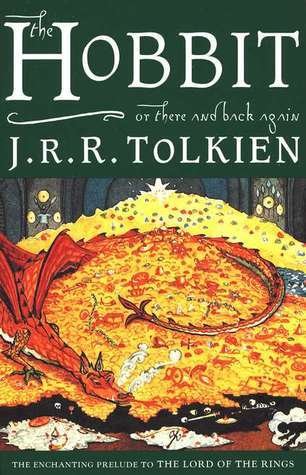A Journey into Comfort: My Thoughts on The Hobbit
In a world bustling with complexity, finding a book that offers both adventure and warmth feels like stumbling upon a cozy hobbit-hole. My journey into J.R.R. Tolkien’s The Hobbit, or There and Back Again was exactly that—a delightful exploration of bravery, friendship, and the simple joys of home. Tolkien wasn’t merely an author; he was a master weaver of intricate tales who sparked a fantasy revolution from his quiet corner in Oxford. His whimsical prose and richly crafted world captured my imagination, compelling me to lose myself in both the enchanting narrative and its underlying wisdom.
At its core, The Hobbit is a simple story: Bilbo Baggins, a gentle hobbit with a love for comfort, is thrust into an unexpected adventure with a band of dwarves and the enigmatic wizard Gandalf. Personally, I found immense pleasure in how Bilbo’s initial reluctance to embark on this quest mirrors many of our own hesitations in life. The themes of growth and self-discovery are beautifully articulated as Bilbo transitions from a home-loving individual to a brave, resourceful hero. The idea that adventures, though sometimes uncomfortable, can lead us to discover facets of ourselves previously hidden is particularly resonant.
Tolkien’s writing style is a blend of charming whimsy and profound depth. His narrative voice feels like a trusted friend, guiding us through the peculiarities of hobbits, elves, and dragons with a touch of humor. Phrases like “It was a hobbit-hole, and that means comfort” invite us into Bilbo’s world and instantly create a sense of belonging. And how could I forget the playful moment when Bilbo laments, “We don’t want any adventures here!”—a sentiment many of us can relate to in our day-to-day lives. It’s these little touches that make the story not just enjoyable but also thoughtfully relatable.
One of the standout moments for me was Bilbo’s encounter with Gollum, a poignant scene that reveals moral complexities and the power of choice. His decision to spare Gollum’s life, even when he could easily have ended it, speaks to the strength of character he develops throughout the journey. Tolkien’s world is not black and white; moral shades abound, reflecting the intricacies of real life.
It’s hard to overstate the influence The Hobbit has had on modern fantasy. Without it, we might not have the Tolkien-esque worlds that fill our bookstores today. The exploration of themes such as greed, companionship, and the consequences of our actions resonates deeply, and it’s exciting to see how Tolkien’s concepts continue to inspire countless writers and filmmakers.
As I closed the book, I felt a blend of nostalgia and anticipation for the journeys that lay ahead—both for Bilbo and for myself. I would recommend The Hobbit to anyone seeking comfort in literature, whether you’re new to the world of fantasy or a seasoned adventurer. Its charm and wisdom resonate across ages and backgrounds, making it a timeless read.
In the end, Tolkien’s tale is a celebration of the ordinary and the extraordinary, reminding us that even the smallest person can change the course of the future. So, no matter how daunting your life’s adventures may seem, remember: sometimes, it begins with a simple phrase—“In a hole in the ground there lived a hobbit.”
[ad_2]
Discover more about The Hobbit, or There and Back Again on GoodReads >>







